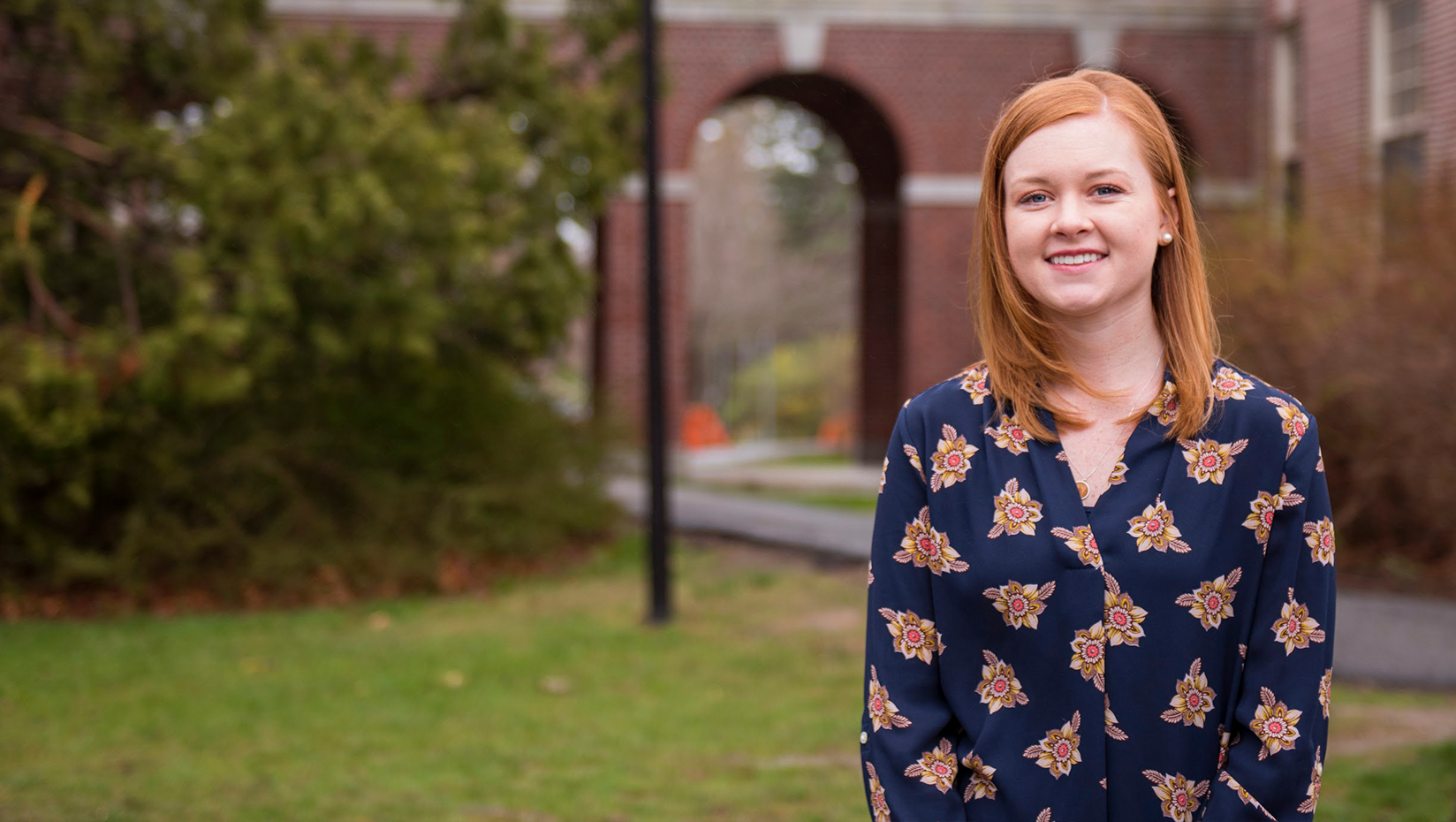
Melissa Jankowski: Aspiring forensic psychologist evaluates inmates, patients at N.C. prison complex
To become a forensic psychologist, Melissa Jankowski decided to participate in a competitive internship at a prison complex famous for housing several high-profile inmates: the Federal Correctional Complex in Butner, North Carolina.
Many know FCC Butner for having housed Unabomber Ted Kaczynski and Tiger King Joe Exoctic, but it doesn’t only house incarcerated individuals. The complex also holds defendants awaiting trial and mental health patients committed by court to its Federal Medical Center.
Jankowski, a University of Maine Ph.D. student in clinical psychology from Cassville, Missouri, conducts evaluations on all of them for the complex’s Forensic Evaluation Service. She helps determine whether a defendant is competent to stand trial, can be found not guilty by reason of insanity and — if they are found not guilty by reason of insanity or unable to be restored to competency to proceed with their legal charges — whether they should be civilly committed to FCC Butner due to their dangerousness. She also is occasionally subpoenaed to testify in federal court on her findings.
Her additional responsibilities include attending treatment team meetings, presenting cases to the in-house risk panel, conducting locked housing rounds and leading competency restoration, illness management and recovery groups.
Working at FCC Butner reminds Jankowski of her desire to dispel a widely held belief that only bad people go to prison because they did bad things, a key reason behind her goal of becoming a forensic psychologist. Those bad things, she says, “are often the unfortunate sequelae of a plethora of other variables outside of inherent virtue,” including developmental trauma, mental health issues, and a lack of resources and privilege.
“Working in a correctional setting has opened my eyes to the historical and systemic complications that can result in incarceration, and has forced me to challenge many of my own internal assumptions and to acknowledge my own privilege,” she says. “I find myself humbled each day.”
Jankowski’s work at FCC Butner coincides with a competitive internship program offered by the University of North Carolina School of Medicine.
When she isn’t at the complex, Jankowski provides services for other organizations as part of her internship. She previously conducted neuropsychological assessments with retired professional football players for the National Football League Players Association Brain and Body Health Program. Other current and future rotations include conducting gender-affirming evaluations and care at the UNC Gender Equity and Wellness Initiative Clinic, assessing and treating patients at UNC’s Psychiatric Emergency Services, and administering forensic and neuropsychological evaluations at a state hospital.
For the next rotation of her internship, she will provide correctional psychology services at another facility in FCC Butner. Starting in March, her duties will involve, monitoring individuals’ wellbeing, providing individual and group therapy and conducting suicide risk assessments, all of which she says should help inmates cope with prison life and tackle the behaviors and other mental health issues that may have resulted in their incarceration.
While Jankowski plans to become a forensic psychologist, she says studying at UMaine taught her that becoming a great specialist requires diverse clinical experience. The internship at UNC School of Medicine provides the breadth of experience she seeks while also helping her specialize in forensic psychology.
“UNC and FCC Butner also provide me with eight hours of protected research time each week,” she says. “Coming from UMaine’s scientist-practitioner program, it was important to me to further my research endeavors.”
In 2017, Jankowski received a three-year National Science Foundation Graduate Research Fellowship to support her investigation into peer relationships and their association with risk and resilience in adolescence. She particularly focused on the interpersonal mechanisms of risk for, and influence of, “contagious” suicide and self-harm behaviors in adolescents.
While the funding for the grant ended, Jankowski says her research in this area is ongoing. Her dissertation, she says, “examines how trait and state self-criticism differentially impact the perceived benefits and barriers to self-injurious behavior.”
“The NSF fellowship also afforded me the time to pursue research on problematic sexual behaviors, an issue that comes up frequently in forensic referral questions,” she says. “I have publications in progress for each of these projects and look forward to furthering this line of research during the internship and beyond.”
Jankowski has studied at UMaine as a graduate student of clinical psychology since 2015. She received her master’s degree in 2018, and expects to earn her Ph.D. this year.
“Having attended internship interviews and been exposed to other programs, it is clear that the clinical training opportunities offered by UMaine are top-notch. Students in our program are afforded developmentally appropriate supported autonomy in a way that is truly unique,” Jankowski says. “UMaine gave me the support and space to form my own professional identity, and the state of Maine provided a beautiful backdrop to escape from the stresses of graduate school. I can’t imagine having trained anywhere else.”
Jankowski plans to pursue a postdoctoral fellowship after she graduates, a requirement to become a board-certified forensic psychologist.
Contact: Marcus Wolf, 207.581.3721; marcus.wolf@maine.edu
